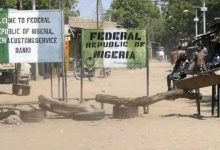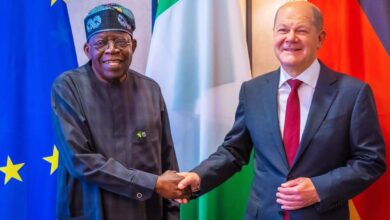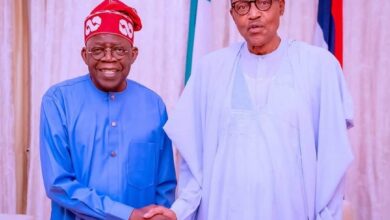Niger Government’s Decision to Expel UN Officials: A Complex Diplomatic Move
Navigating a Complex Diplomatic Landscape: Challenges and Opportunities
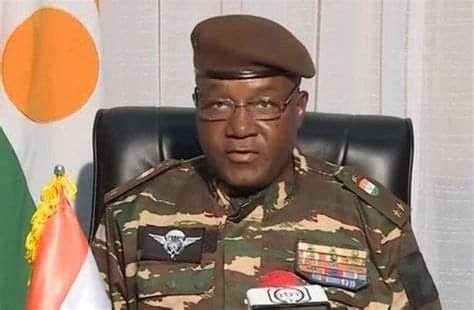
Niger Government’s Decision to Expel UN Officials: A Complex Diplomatic Move
Introduction
In recent news, the government of Niger, under military leadership, has taken the unprecedented step of issuing an urgent directive to United Nations (UN) officials to leave the country within a span of 72 hours. This decision has raised significant eyebrows and generated considerable debate in the international diplomatic community. In this blog post, we’ll explore the circumstances surrounding this decision, its potential implications, and the complex diplomatic landscape in which it unfolds.
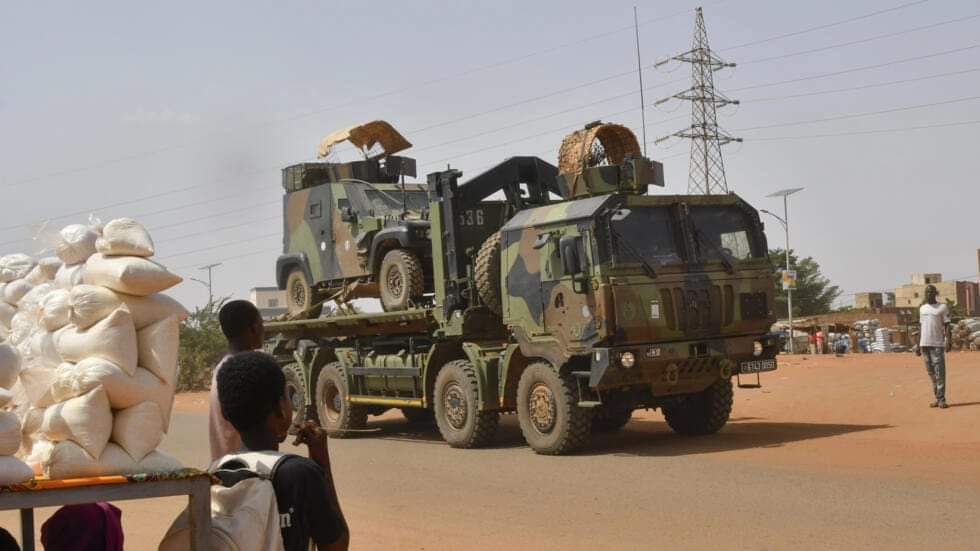
Background and Context
The current situation in Niger is marked by a combination of political, economic, and security challenges. The military took control of the government in a coup, citing a need to restore order and address various issues facing the nation, including political instability, corruption, and security concerns.
The Decision to Expel UN Officials
The decision to expel UN officials within such a short timeframe is a rare and bold move. The official statement from the Nigerien military government suggests that the decision is motivated by concerns related to the actions of certain UN personnel and the desire to assert national sovereignty.
Potential Implications
- Diplomatic Tensions: This decision has the potential to strain diplomatic relations between Niger and the United Nations, as well as with other member states that have a vested interest in the stability of Niger.
- Impact on Aid and Development: Niger relies on international assistance from organizations like the UN for various development projects and humanitarian aid. This move could disrupt critical assistance programs.
- Security and Human Rights Concerns: The expulsion of UN officials may raise concerns about the country’s commitment to addressing security and human rights issues, as the UN plays a crucial role in peacekeeping and monitoring human rights abuses.
- Economic Impact: The expulsion could also have economic consequences as it may discourage foreign investment and impact the country’s economy.
Complex Diplomatic Landscape
The decision to expel UN officials underscores the complex diplomatic landscape that often accompanies political transitions or upheaval. It highlights the tension between national sovereignty and the international community’s interest in ensuring good governance, security, and respect for human rights.
The Way Forward
For Niger, this decision opens a chapter of uncertainty and potential isolation. It is essential for the government to engage in dialogue and diplomacy with the international community to address its concerns while upholding its commitments to global governance and human rights. The international community, including the UN, must also exercise diplomacy and engage constructively with the Nigerien government to find a resolution that serves the interests of the nation and its people.

In an extraordinary turn of events, the government of Niger, currently under military leadership, has issued an unexpected and abrupt directive: United Nations (UN) officials are to leave the country within a mere 72-hour window. This bold decision has ignited international conversations and concerns about the diplomatic consequences and the implications it carries for Niger and its international relations. In this blog post, we will delve into the rationale behind this decision, its potential ramifications, and the intricate diplomatic landscape that it unveils.
Context and Underlying Factors
The current situation in Niger is marked by a unique blend of political, economic, and security challenges. The military takeover, or coup, was cited as a necessary step to address these pressing issues, including political instability, corruption, and security concerns.
The Expulsion Directive
The move to expel UN officials within such a limited timeframe is indeed unusual. The official statement from the Nigerien military government alludes to concerns surrounding the conduct of certain UN personnel and the desire to emphasize national sovereignty.
Possible Implications
- Diplomatic Strain: The directive to expel UN officials has the potential to strain diplomatic relations between Niger and the United Nations, as well as with other member states that have a vested interest in Niger’s stability and development.
- Aid and Development Disruption: Niger relies on international assistance from organizations like the UN for various development programs and humanitarian aid. This abrupt expulsion could jeopardize critical aid and assistance projects.
- Security and Human Rights Concerns: The expulsion of UN officials may raise concerns about Niger’s commitment to addressing security issues and human rights abuses, given the UN’s crucial role in peacekeeping and monitoring such matters.
- Economic Consequences: The directive may also have economic repercussions, as it could deter foreign investment and impact Niger’s economic stability.
Navigating a Complex Diplomatic Landscape
The decision to expel UN officials shines a spotlight on the intricate diplomatic landscape often associated with political transitions and upheavals. It underscores the tension between a nation’s assertion of its sovereignty and the international community’s commitment to promoting good governance, security, and human rights.
The Way Forward
For Niger, this decision represents a juncture of uncertainty and potential isolation. It is paramount that the government engages in diplomacy and constructive dialogue with the international community to address its concerns, while also upholding its responsibilities in the realm of global governance and human rights. The international community, including the UN, must likewise employ diplomacy and constructive engagement with the Nigerien government to seek a resolution that prioritizes Niger’s stability, development, and security.

Navigating a Complex Diplomatic Landscape: Challenges and Opportunities
In our increasingly interconnected world, diplomacy plays a pivotal role in shaping international relations, resolving conflicts, and advancing global interests. The diplomatic landscape is complex, characterized by ever-evolving challenges and opportunities. In this blog post, we’ll explore the intricate world of diplomacy, delving into the complexities, the pivotal role it plays, and the opportunities it presents for fostering peace and cooperation.
The Diplomatic Landscape: A Complex Tapestry
- Geopolitical Dynamics: Geopolitical interests are at the core of diplomacy. Nations jostle for influence, alliances shift, and tensions can escalate or subside based on the evolving global political map.
- Economic Interdependencies: The modern world is economically interdependent. Trade, investment, and financial relationships are integral to diplomacy, creating both opportunities for cooperation and potential sources of conflict.
- Security Challenges: National security concerns, including terrorism, cyber threats, and nuclear proliferation, are key elements of diplomatic discussions. Diplomats work tirelessly to mitigate these threats and foster stability.
- Cultural and Ideological Differences: Cultural, religious, and ideological differences can lead to misunderstandings and conflicts. Diplomacy helps bridge these divides and encourages understanding.
- Environmental and Global Issues: Climate change, pandemics, and other global challenges require collective action. Diplomacy provides the framework for addressing these issues on a global scale.
The Pivotal Role of Diplomacy
- Conflict Resolution: Diplomacy is often the primary tool for resolving conflicts and preventing wars. Negotiations, peace treaties, and diplomacy have ended many historical disputes.
- Promoting Trade and Economic Prosperity: Diplomacy facilitates trade agreements and economic cooperation, which can spur economic growth and prosperity.
- Humanitarian Aid and Development: Diplomacy is crucial in coordinating humanitarian aid efforts and promoting development projects in needy regions.
- Crisis Management: Diplomats often serve on the front lines in times of crisis, managing evacuations, coordinating relief efforts, and ensuring the safety of citizens abroad.
- Maintaining Alliances: Diplomacy is instrumental in sustaining alliances and partnerships, strengthening the bonds between nations.
Opportunities for Global Cooperation
- Nuclear Disarmament: Diplomacy has been instrumental in the negotiation of nuclear disarmament treaties and efforts to prevent nuclear proliferation.
- Environmental Agreements: Diplomatic efforts have led to international agreements like the Paris Agreement, fostering global cooperation on climate change.
- Human Rights Advancements: Diplomacy often contributes to the promotion of human rights by advocating for the rights of oppressed or marginalized groups.
- Disease Control: International diplomacy plays a key role in responding to pandemics and ensuring that healthcare resources are equitably distributed.
Conclusion
The expulsion of UN officials by the Nigerien military government within a short timeframe is a decision that has far-reaching implications, touching on diplomatic, economic, and security concerns. As the international community watches this situation closely, it is crucial that all parties involved engage in constructive dialogue and diplomacy to navigate the complex landscape and work towards a resolution that prioritizes the stability, development, and security of Niger
